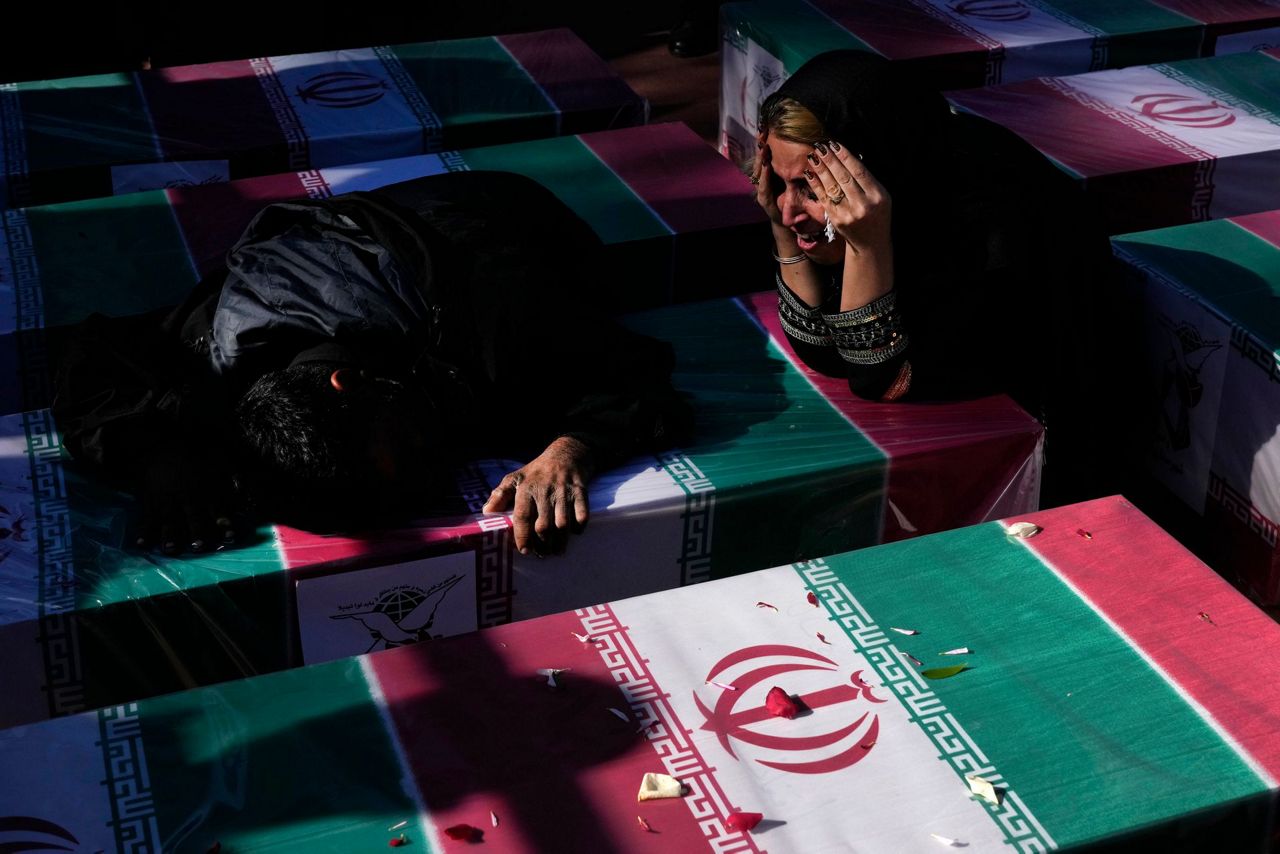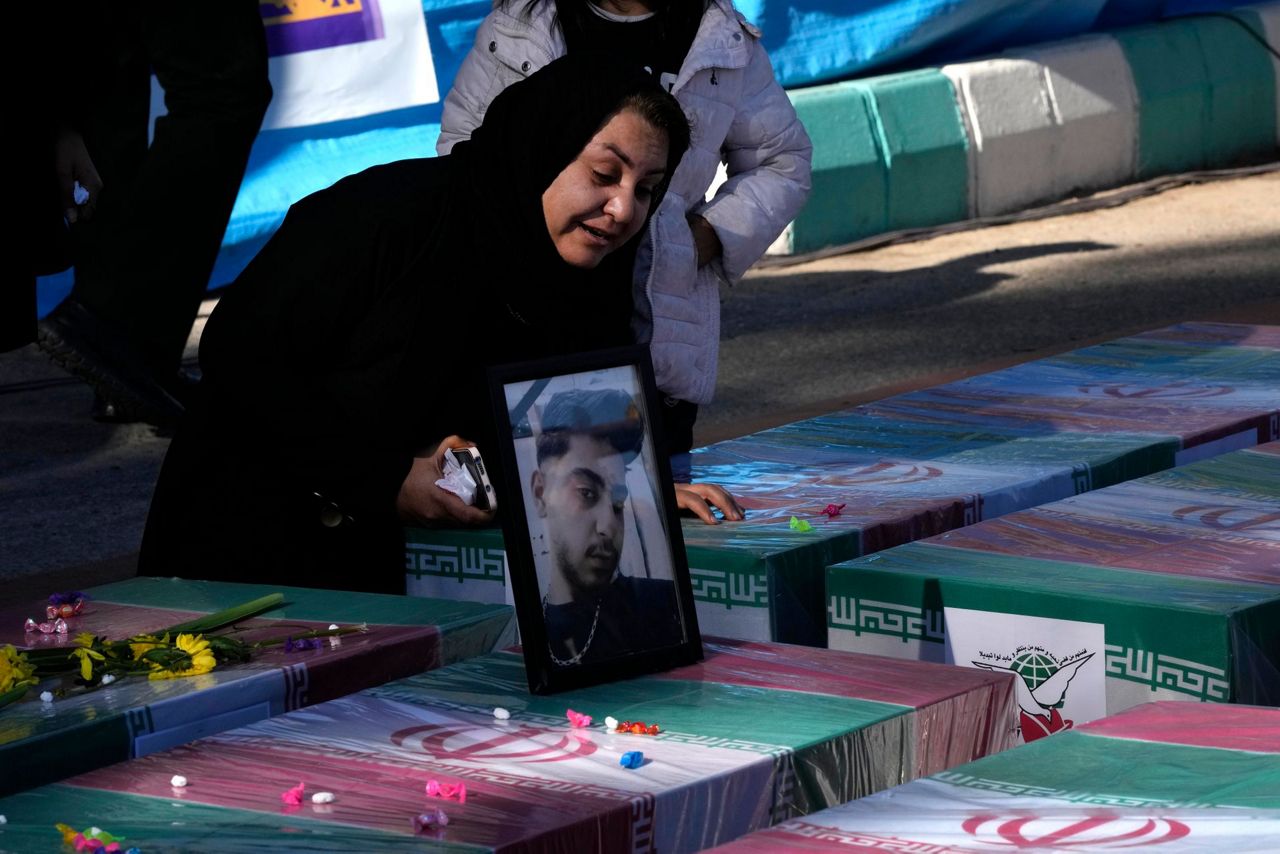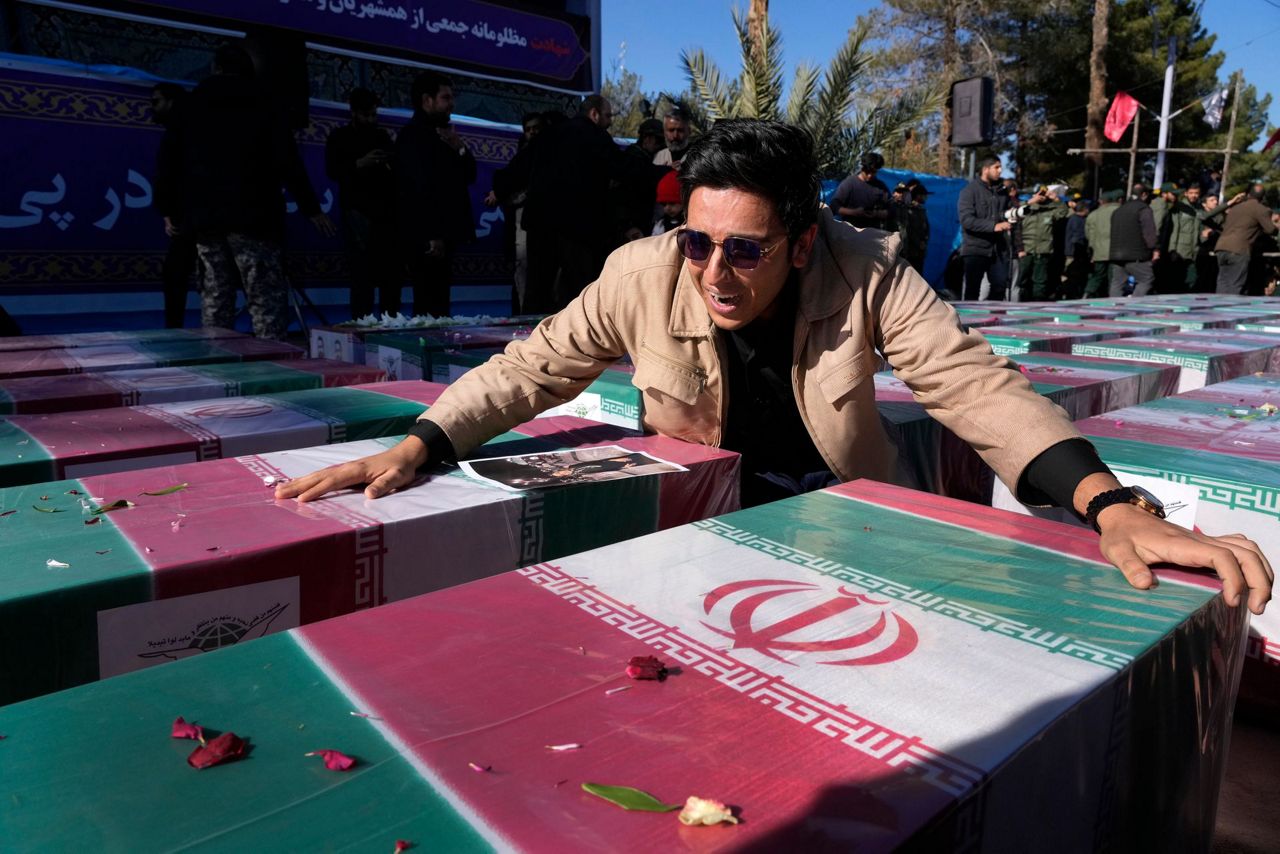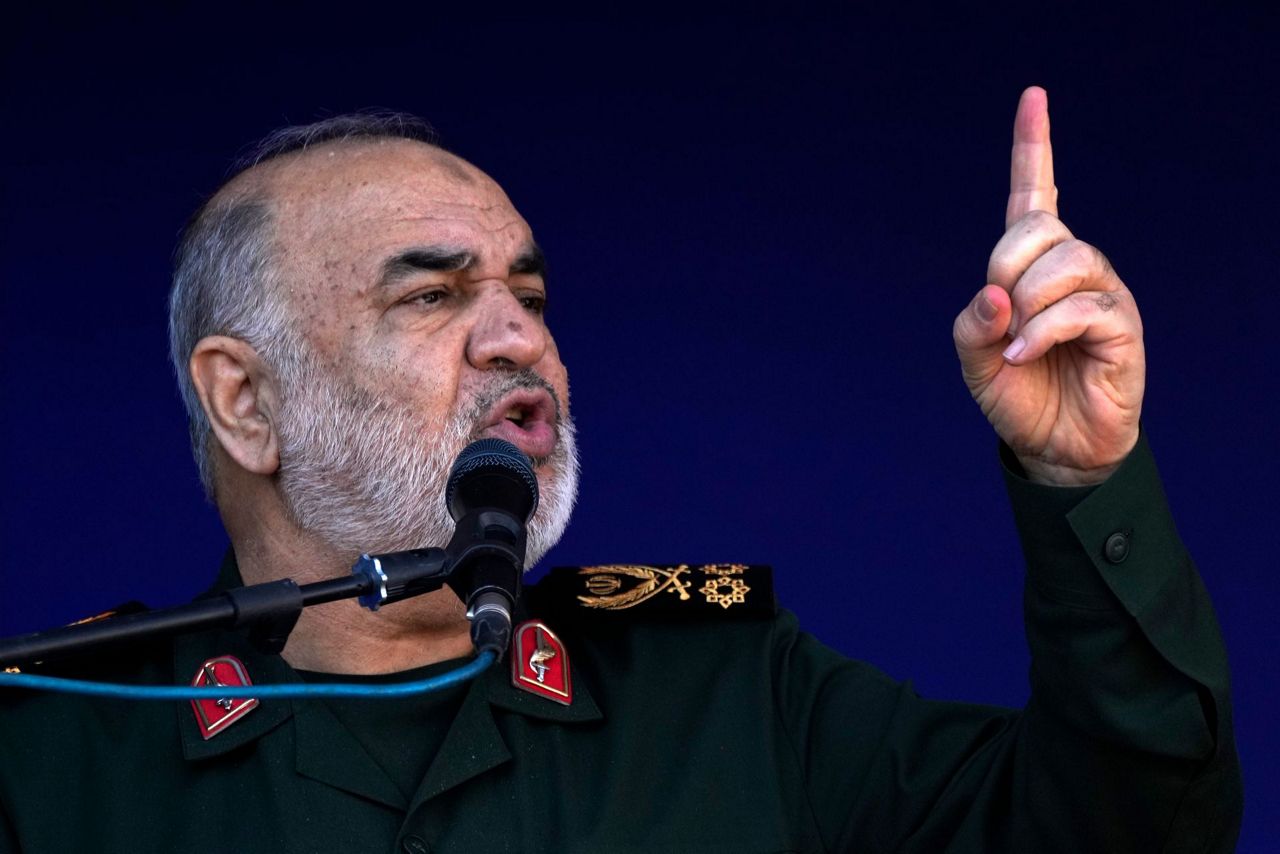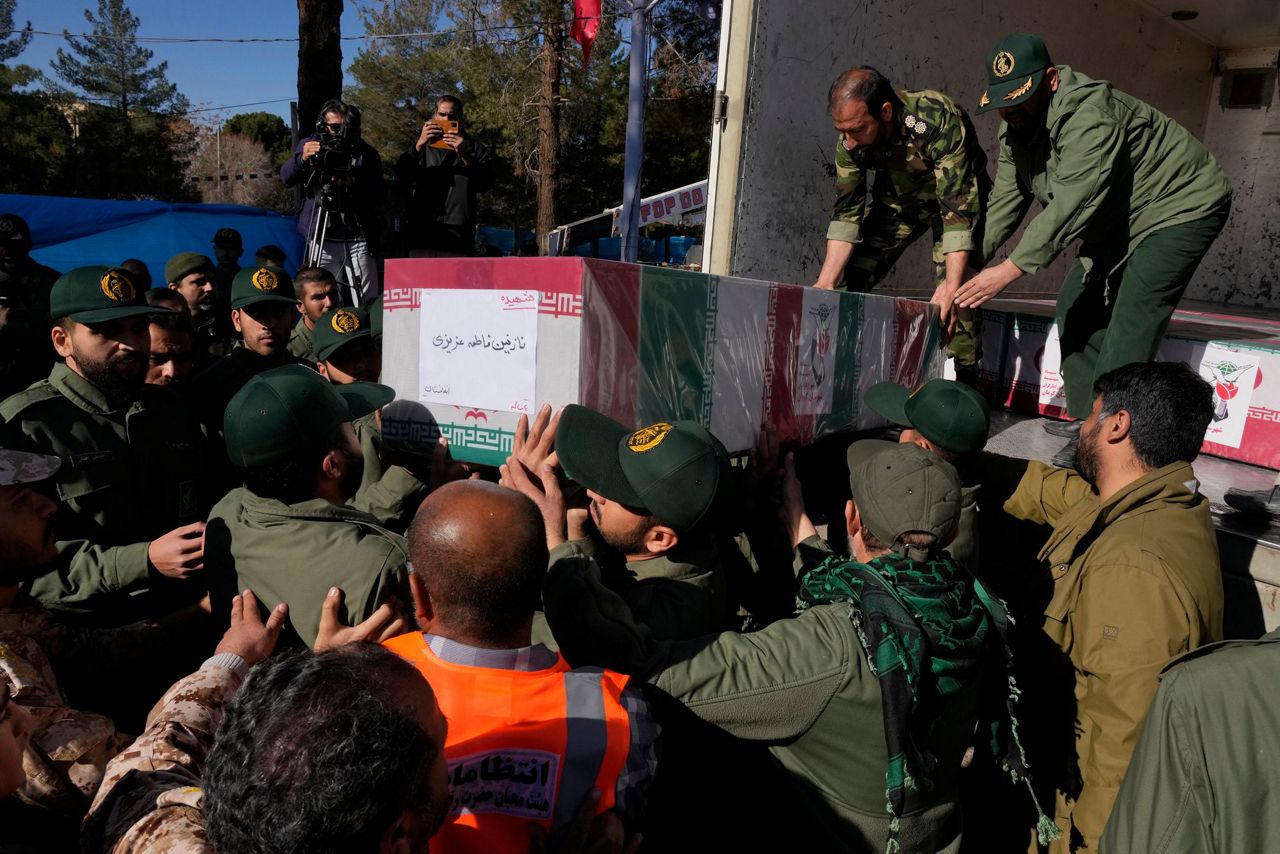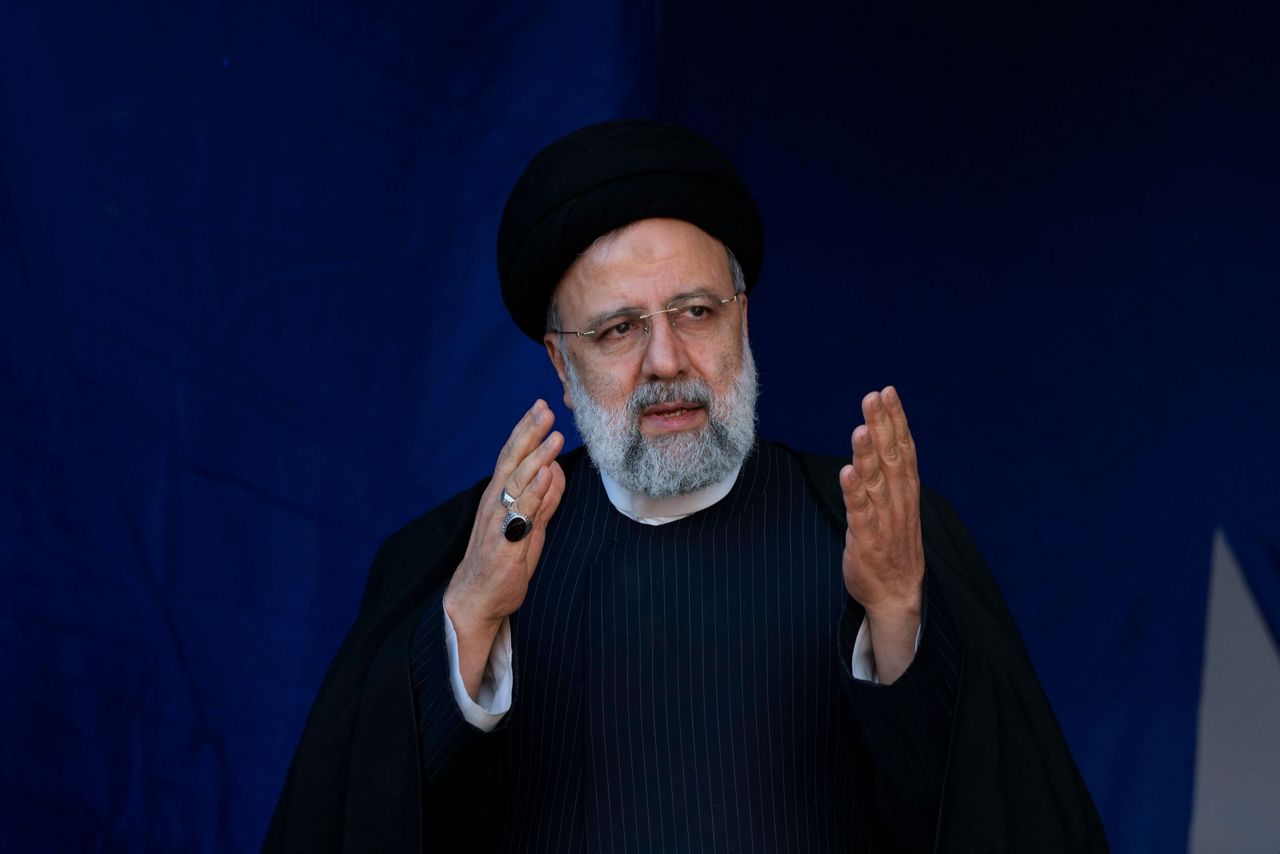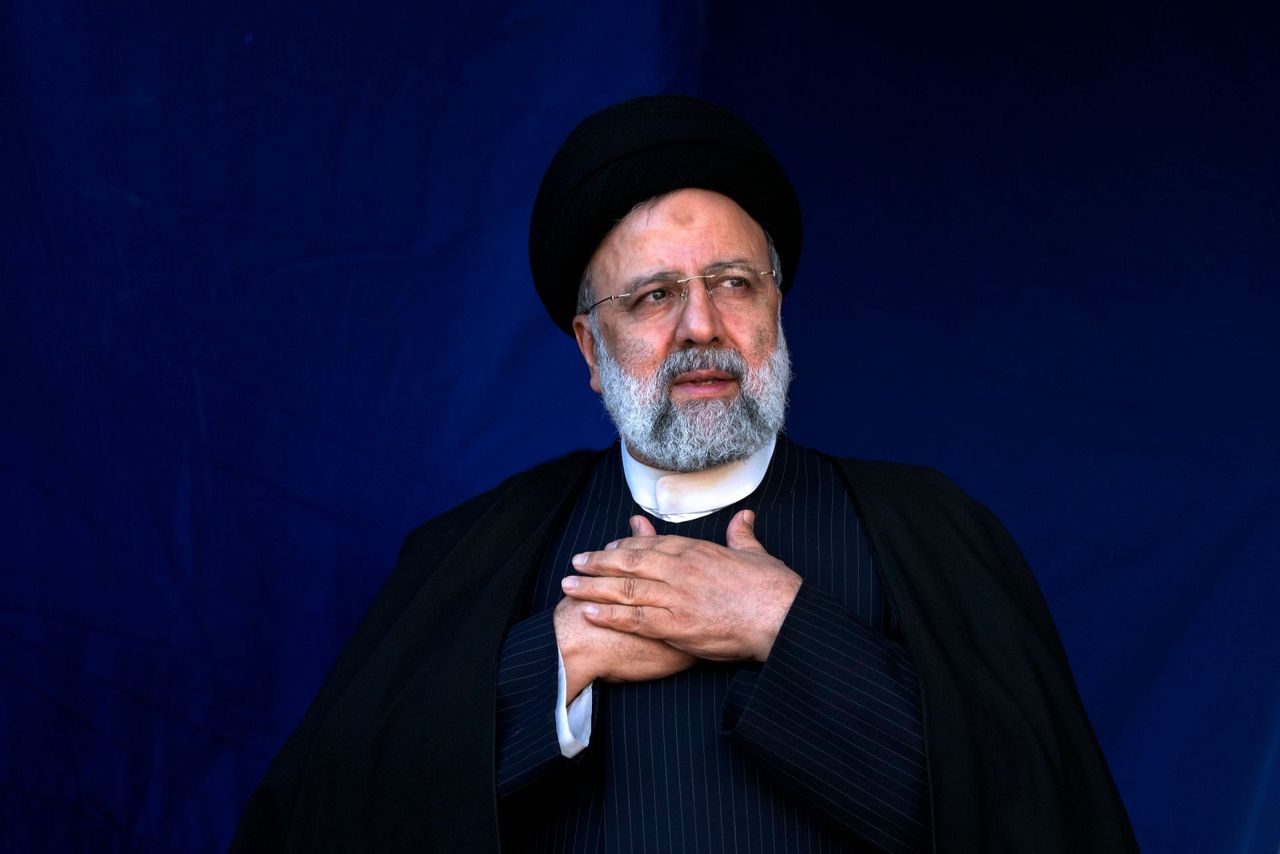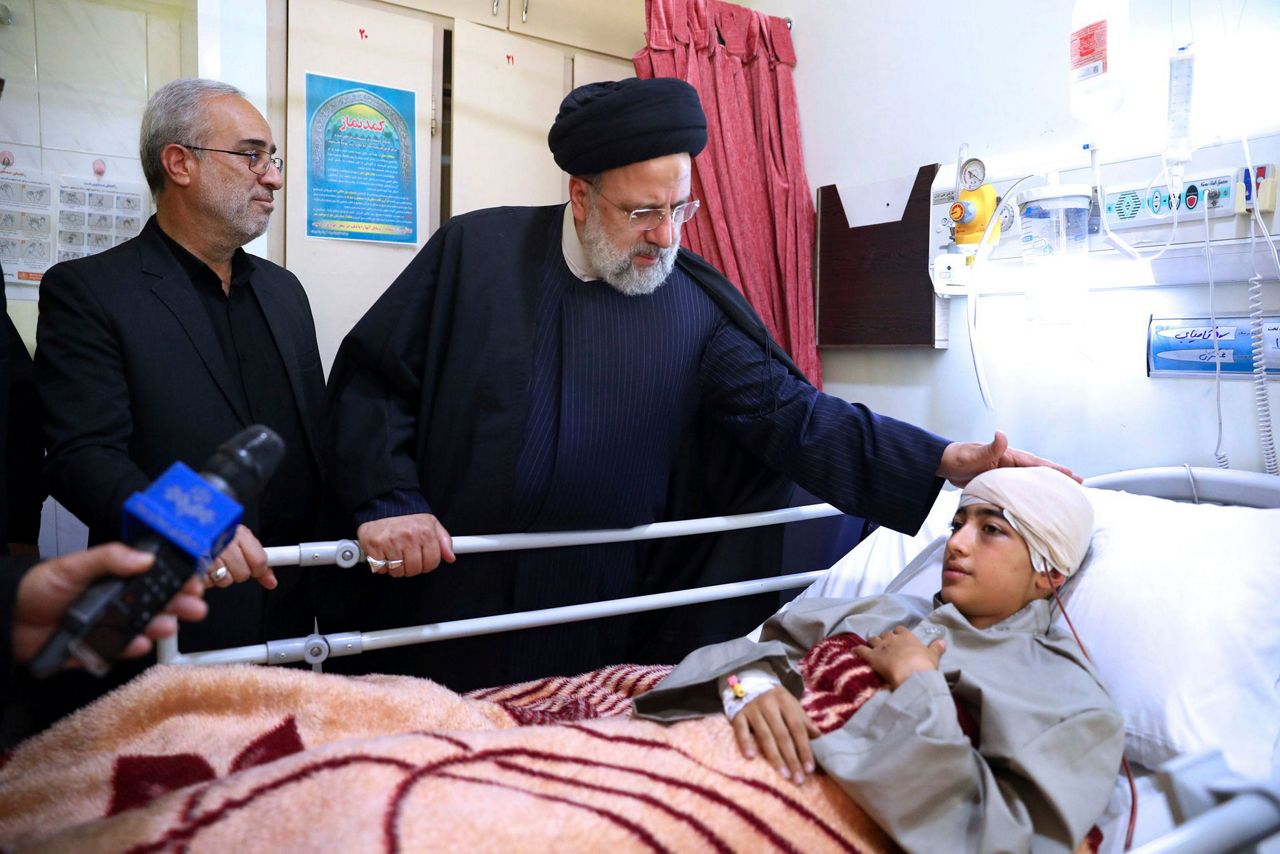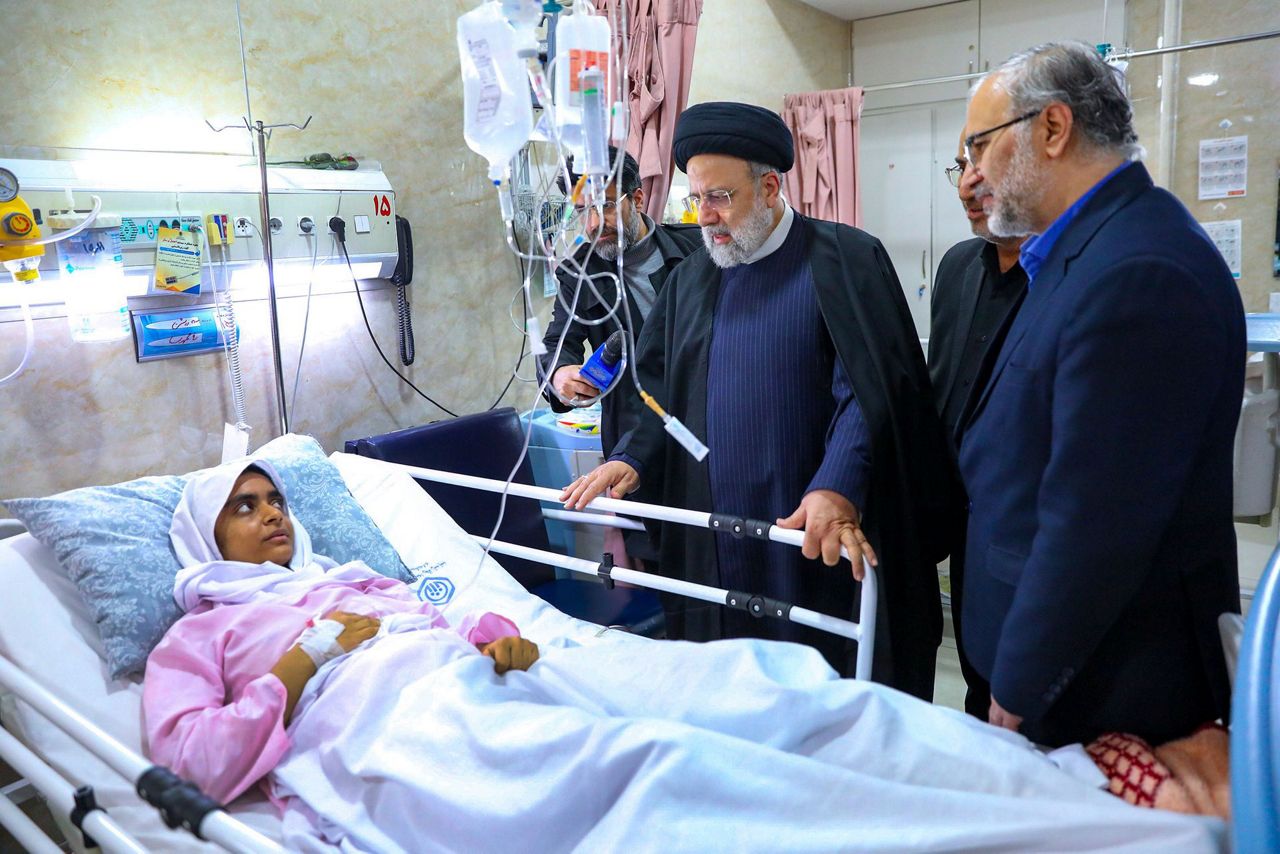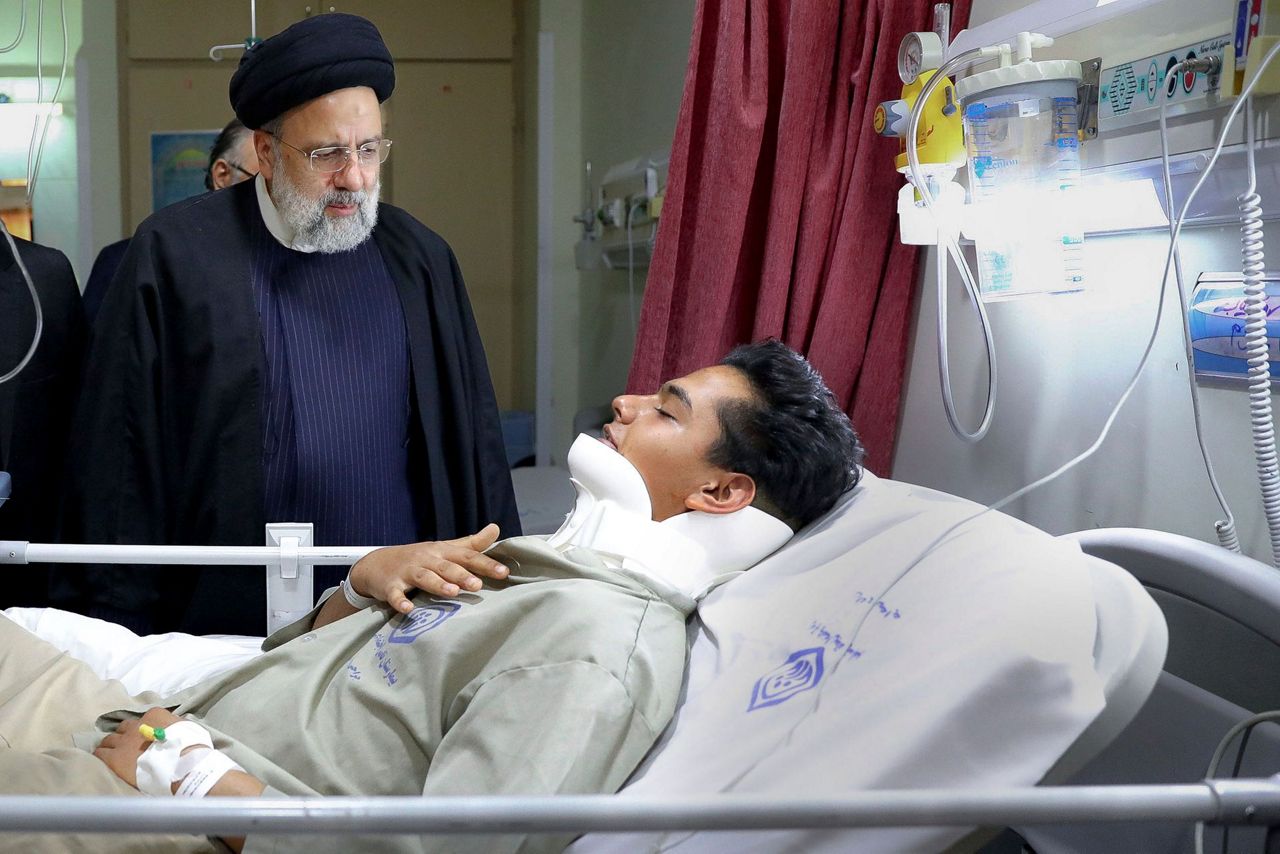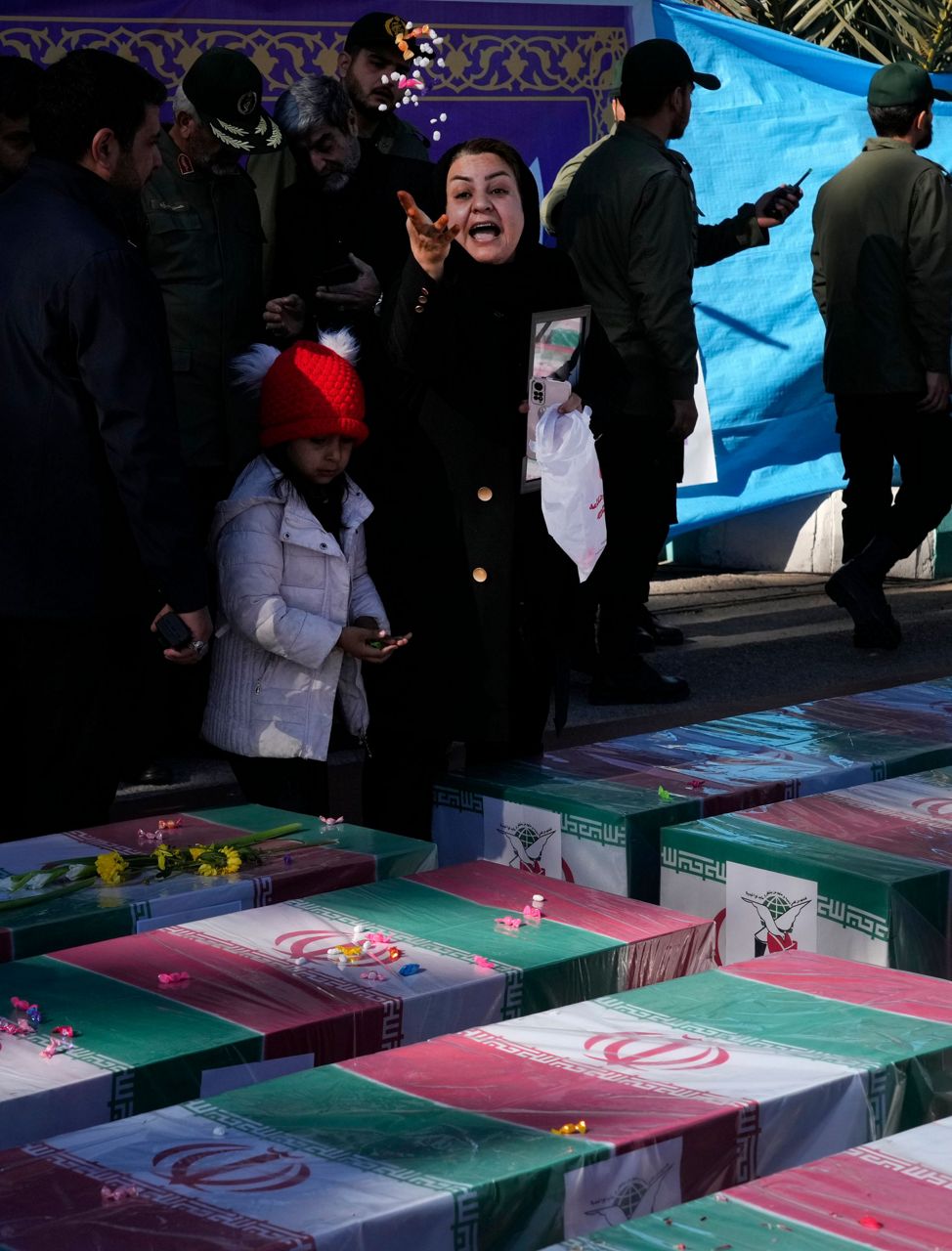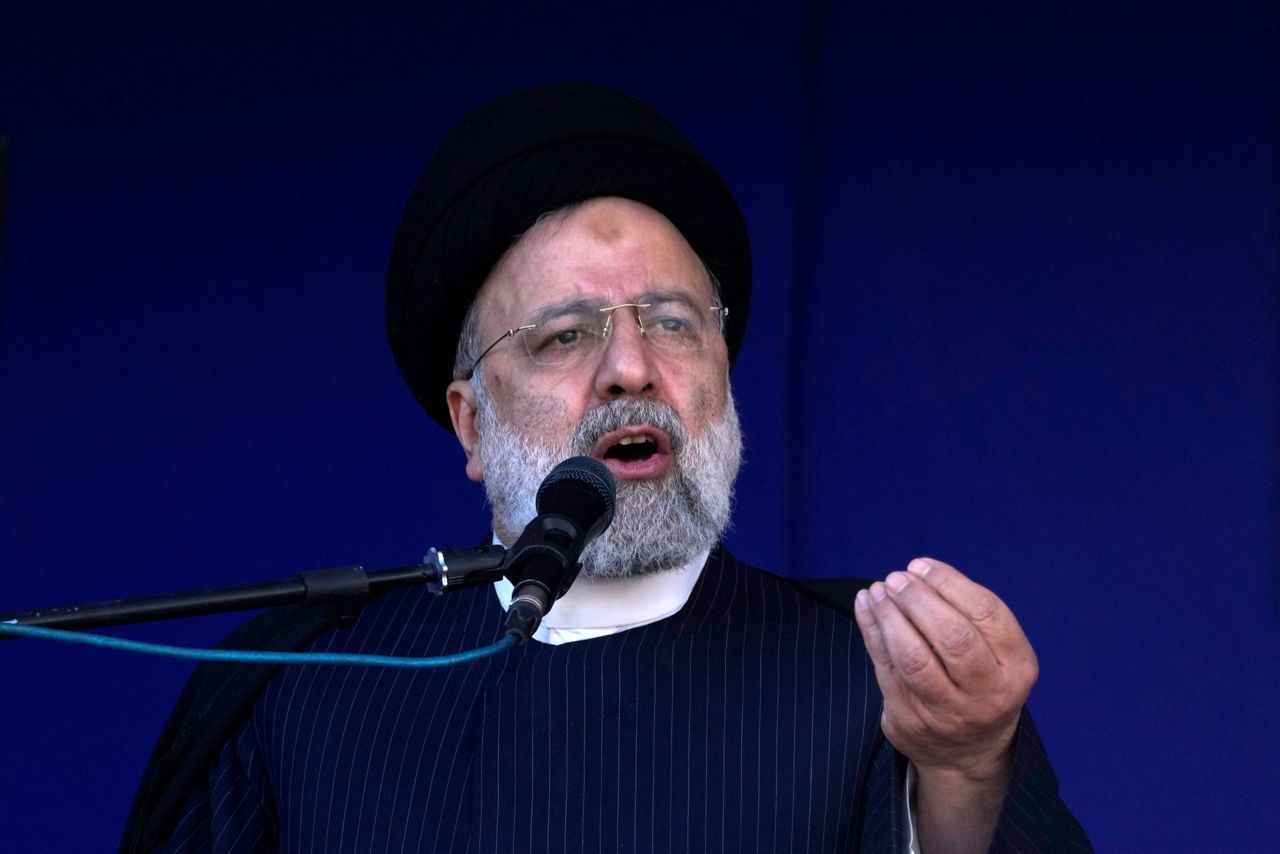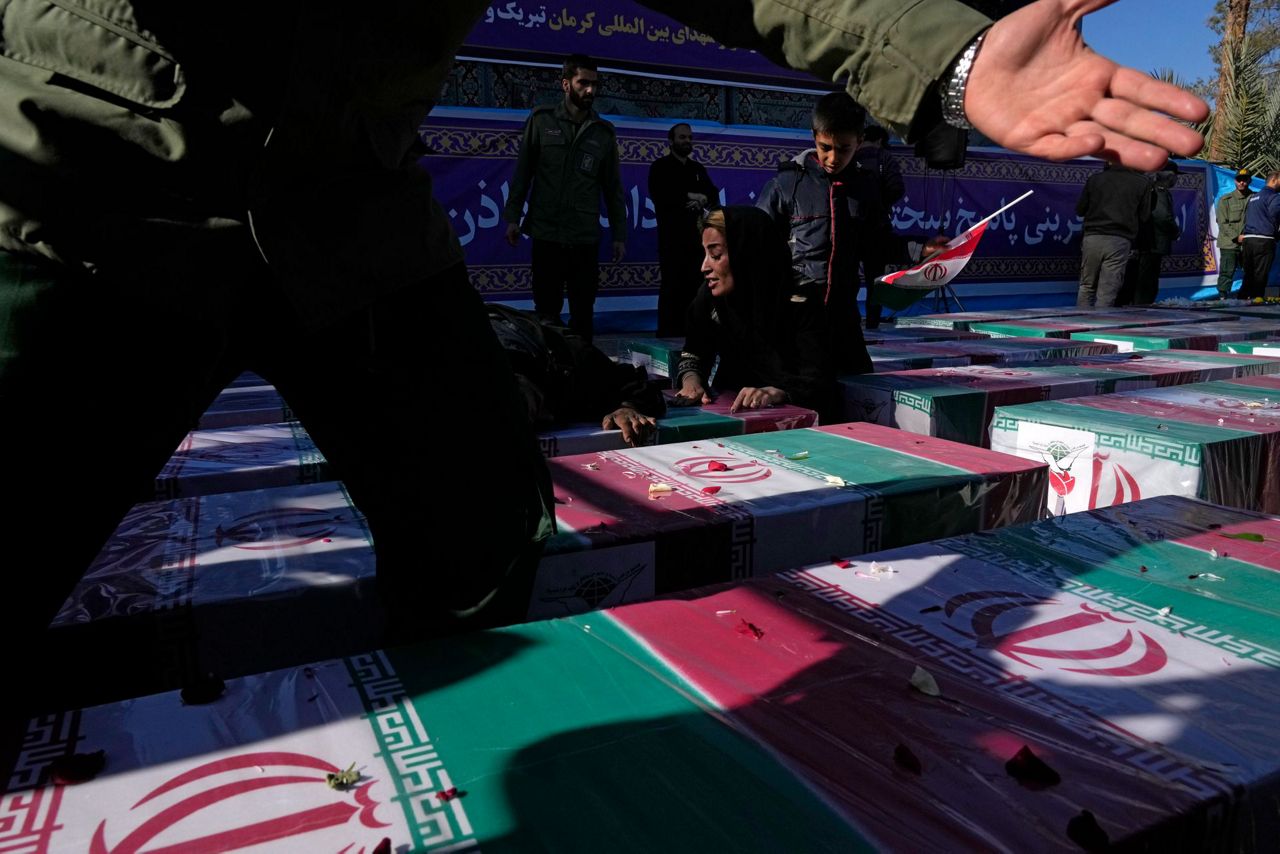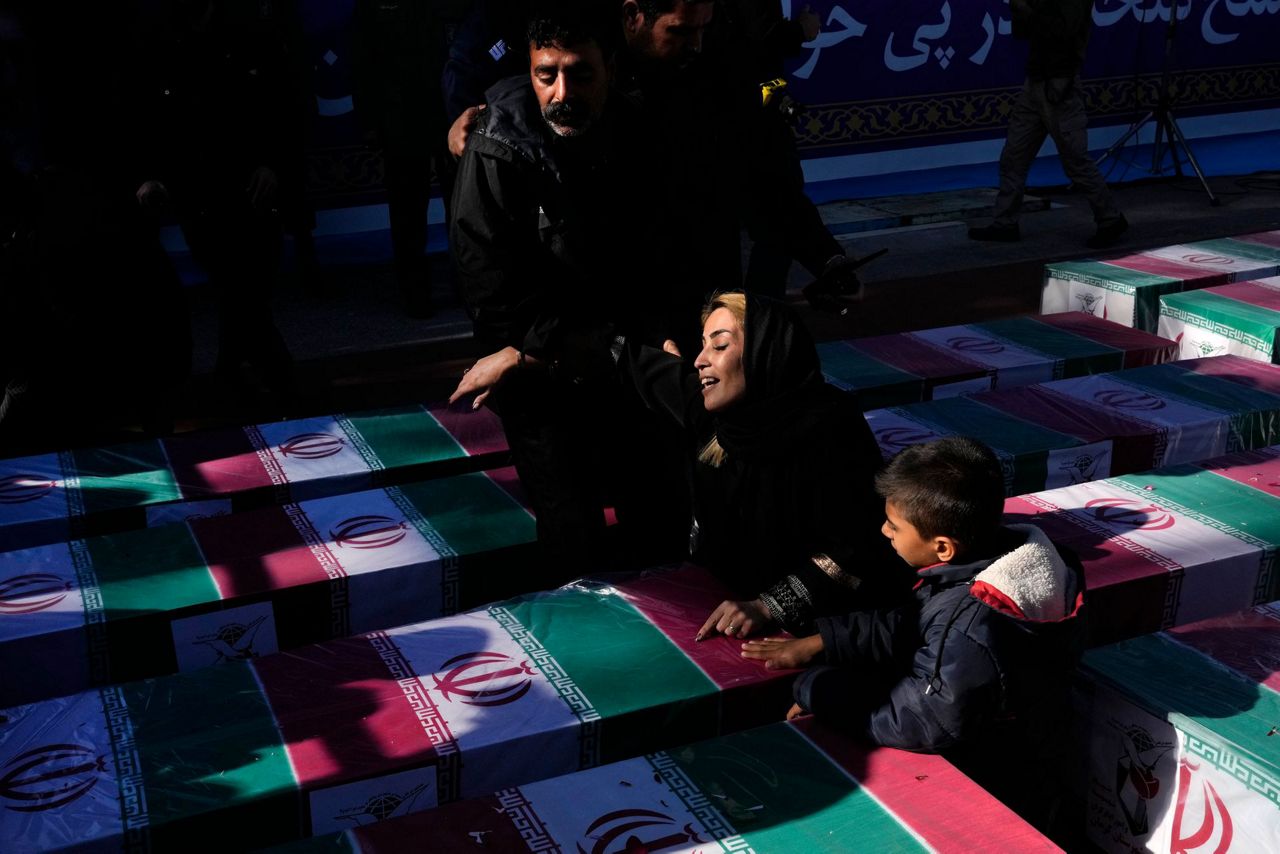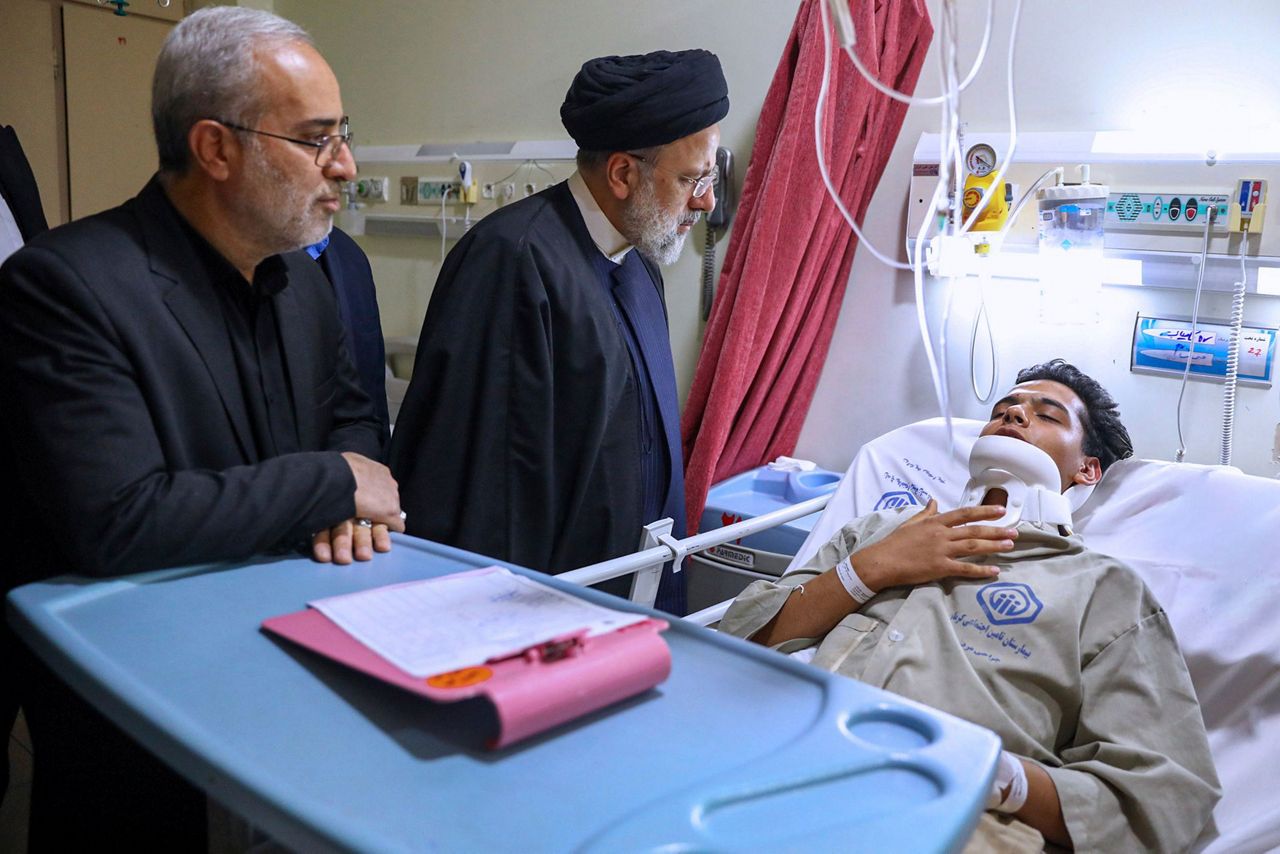KERMAN, Iran (AP) — Iranian officials tried Friday to link Israel and the U.S. to an Islamic State group-claimed suicide bombing while speaking to a mass funeral for some of the 89 people killed in the attack, seeking to intertwine the assault with wider Middle East tensions from the Israel-Hamas war.
Iranian President Ebrahim Raisi and the top commander of Iran's paramilitary Revolutionary Guard sought to make the link without offering evidence for their claims. The gathered crowd in front of flag-draped caskets shouted in response: "Death to America!" and “Death to Israel!”
“The enemy always sees the power of the Islamic Republic. The whole world is recognizing this power and this ability,” Raisi said, without directly naming any country. "Be sure, the initiative is in the hands of our powerful forces. The place and time will be determined by our forces.”
Iranian state television also sought to link America to the attack. At one point, it re-broadcast comments from 2016 from then-presidential candidate Donald Trump, who wrongly accused then-President Barack Obama of being the “founder” of the extremist group.
Critics have blamed Obama's decision to pull troops from Iraq in 2011 for allowing the group, once an affiliate of al-Qaida, to thrive and ultimately hold vast swaths of Iraq and Syria in its self-declared caliphate by 2014. U.S. troops under both Obama and Trump then battled alongside allied forces to retake that territory.
Gen. Hossein Salami, the commander of the Guard, similarly sought to make the connection.
"They can only act as agents and mercenaries of American politics and Zionism,” Salami said. “But we give them this warning, … wherever you are, we will find you. You cannot avoid divine punishment by disappearing. If you live for 1,000 years, we will find you.”
In Wednesday’s attack, one suicide bomber killed himself, then another attacked 20 minutes later as people and emergency workers tried to help the wounded in Kerman, about 820 kilometers (510 miles) southeast of the capital, Tehran.
On Friday, the intelligence ministry said in a statement published by its website, vaja.ir, that one of the two suicide bombers was a Tajik national. It said the other’s nationality was not clear yet.
The statement added that after the attack, in the early hours of Thursday, the base of the bombers was identified on the outskirts of Kerman. It said nine people from the terrorist’s team network and its associates had been identified and arrested in six various provinces.
The attack targeted a commemoration for Guard Gen. Qassem Soleimani, killed in 2020 by a U.S. drone strike as he led its expeditionary Quds Force.
Soleimani had been part of the Iranian response to the Islamic State group in Syria, while focusing on keeping embattled Syrian President Bashar Assad in power. He also had extensive ties to proxy groups around the wider Mideast, including Hamas. But the U.S., which killed Soleimani as part of wider tensions over its collapsed nuclear deal with world powers, saw Soleimani as the mastermind behind deadly roadside bombings targeting American soldiers in Iraq.
The two attacks on Wednesday killed at least 89 people and wounded about 280 others, authorities said Friday in an update of the death toll. The attacks have sparked condemnation from around the world, even amid Iran's wider tensions with the West over its nuclear program.
Pope Francis offered a condolence telegram to express his deep sadness over the "loss of life caused by the recent explosions in Kerman," the Vatican said on Friday.
Francis “invokes upon all the people of Iran the Almighty’s blessings of wisdom and peace,” the Vatican said.
The Islamic State group claimed the attack Thursday in a statement that named the two bombers and described it as part of a new campaign linked to Israel's war in the Gaza Strip. The statement bore some differences to previous claims made by the Islamic State group in other attacks it has claimed in Iran, though experts said it appeared to be legitimate and came from online channels associated with the extremists. Much of the group's leadership has been killed and replaced in the years since 2014.
It’s unclear why the two Iranian leaders chose to focus on the U.S. and Israel, rather than on the Islamic State group, during their remarks Friday. Iran has retaliated in the past over IS-claimed attacks, including launching ballistic missiles into Syria.
However, the Islamic State group has grown stronger in recent years in neighboring Afghanistan, just some 360 kilometers (225 miles) east of Kerman, since the Western-backed government in Kabul fell to the Taliban in 2021.
Iran and the Taliban have maintained diplomatic ties since the takeover, though there have been border skirmishes and tensions over water supplies between the two nations. Iranian officials say at least 12 of the dead in Wednesday's bombings were Afghans.
___
Vahdat reported from Tehran, Iran, and Gambrell from Dubai, United Arab Emirates. Associated Press writer Frances D'Emilio in Rome contributed to this report.
Copyright 2024 The Associated Press. All rights reserved. This material may not be published, broadcast, rewritten or redistributed without permission.



